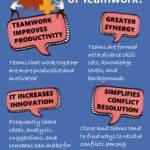
The Inverted Commands Game
Inverted Commands is a simple but not easy active game that helps to inspire good listening skills and reflexes.
Invite your group to spread throughout a large open space. Explain that you will issue a series of commands that will require the group to move or stop as quickly as possible.
Instruct your group to walk when you say “WALK” and to stop walking when you say “STOP.” Issue a series of these two commands, in any order, for 20 to 30 seconds to help your group practice responding.
When ready, pause the action and announce that you will now swap the meaning of these commands, so “WALK” means stop walking and “STOP” means to walk. Challenge your group and each individual to continue to be as accurate and as fast as possible responding to each command.
When ready, announce two new commands. “NAME” invites everyone to say their own name out loud and “CLAP” invites your group to perform one simultaneous clap. Practice these two new commands together with “WALK” and ”STOP.”
So, to summarise – the group is still walking when you say “STOP” and stopping when you say “WALK” and now, will need to call out their own name when you say “NAME” and clap together when you say “CLAP.”
After 30 or more seconds of responding to these four commands, you ramp up the challenge once more. Announce you will swap the meaning of the last two commands, eg when you call “NAME” everyone claps and vice versa.
Continue playing for several minutes and encourage your group to keep a count of how many times they may make a mistake. To squeeze extra value out of this exercise, invite each person when they make an error, to place their hand high in the air for a few seconds to acknowledge that they did not respond as accurately or timely as they would have liked.
This activity is very energiser and funny!
Moment of Reflection
- When the first switch of the commands occurred, what did you experience?
- How did it feel to raise your arm every time you made a mistake? How did you react when you made an error?
- What strategies did you employ to respond as quickly and accurately as possible?
- In what other areas of your life do you need to respond quickly and/or accurately?
The topics of this publication: integration, interactions, active listening, disinhibition, distension, energize


